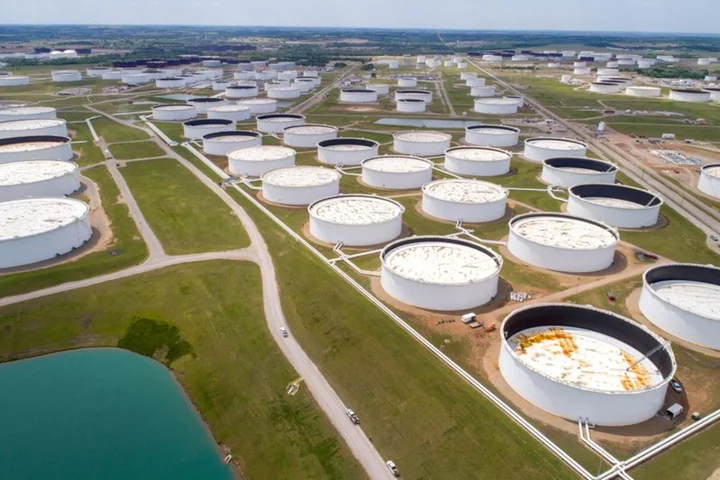By Arathy Somasekhar and Trixie Yap
SINGAPORE (Reuters) -Oil prices surged by almost 1% on Wednesday, trading near their highest since April, as crude and fuel products inventory data showing robust demand from the world's biggest fuel consumer, the U.S., offset demand concerns elsewhere.
Brent crude futures for October rose 76 cents, or 0.90%, to $85.67 a barrel at 0407 GMT. Likewise, U.S. West Texas Intermediate crude for September climbed 76 cents, or 0.93%, to $82.13 a barrel.
U.S. oil inventories fell by 15.4 million barrels in the week ended July 28, according to market sources citing American Petroleum Institute figures, compared with analysts' estimates for a drop of 1.37 million barrels.
If the U.S. government figures, due later on Wednesday, matches the industry drawdown number, it would mark the largest drop in U.S. crude inventories according to records dating back to 1982.
Gasoline inventories fell by 1.7 million barrels, the API data showed, compared with estimates for a 1.3 million barrel drop. Distillate stocks fell by 510,000 barrels, compared with analysts estimates for a build of 112,000 barrels. Both are indicators of robust prompt fuel demand in the U.S.
"The seasonal peak demand period (for transportation fuels) and supply cuts by oil producing countries have caused oil prices to rise," said CMC Markets analyst Leon Li.
Crude oil inventories have also begun to drop in other regions as demand outpaces supply, which has been constrained by deep production cuts from Saudi Arabia, the de facto leader of the Organization of the Petroleum Exporting Countries (OPEC), that has provided price support.
Analysts expect Saudi Arabia to extend its voluntary oil output cut of 1 million barrels per day (bpd) for another month to include September in a meeting of producers on Friday.
Oil prices may continue to rise, but they may not exceed $90 a barrel given recessionary pressures in some regions such as Europe, said Li. Furthermore, after the summer demand peak passes, "oil prices have entered the end of this round of upward trend", he said.
Concerns that oil buying in China, the world's biggest oil importer, may slow as prices rise and weak PMI data released this week indicate fuel demand may be weaker than expected limited the session's price gains.
"Chinese crude buying has been opportunistic rather than due to higher demand. (The) market continues to be driven purely by supply constraints, which are always subject to potential political volatility," said Sparta Commodities' Philip Jones-Lux.
(Reporting by Arathy Somasekhar in Houston and Trixie Yap in Singapore; Editing by Christian Schmollinger)

